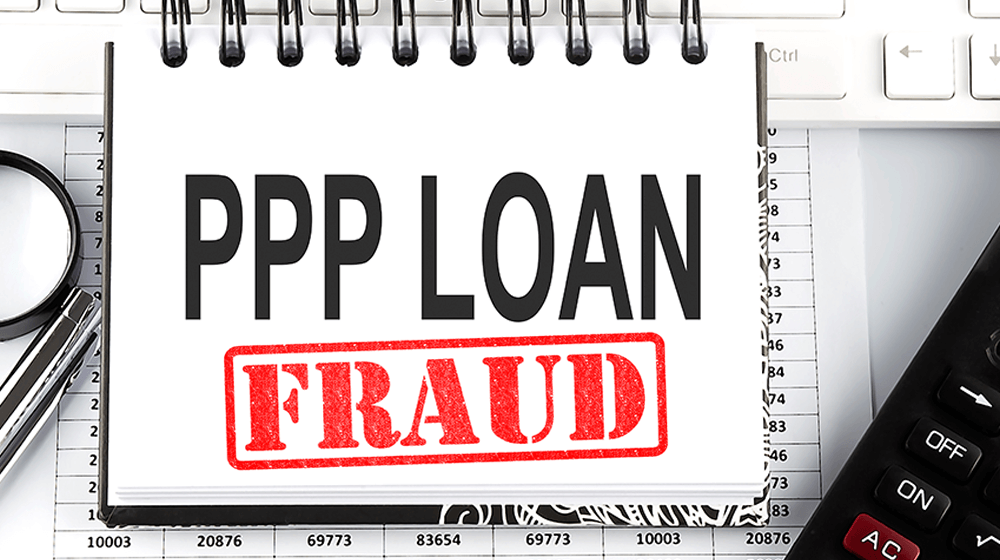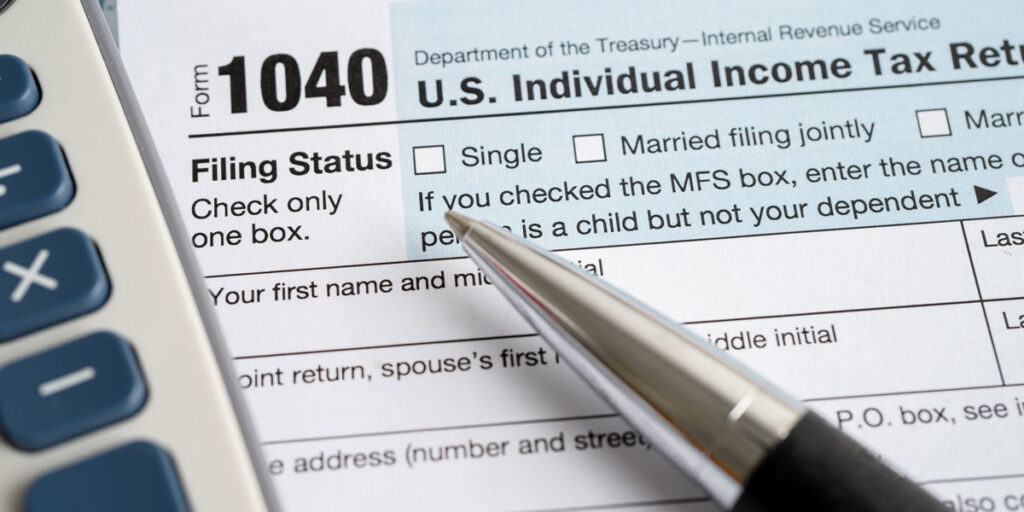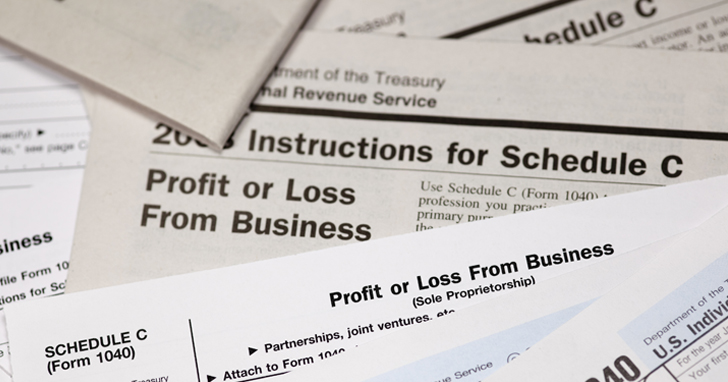Hollins & Associates: Your Tax Resource Partner

At Hollins & Associates, we go beyond tax preparation by helping clients take full advantage of the resources available through IRS.gov. Whether you’re applying for tax-exempt status, navigating your rights as a taxpayer, or protecting yourself from scams, our team provides expert guidance every step of the way.
Have questions or need personalized assistance? Contact Hollins & Associates today and let us support your tax-related needs.
USEFUL INFORMATION | TIP #1
Five Things You Can Find on IRS.GOV
Beyond Tax Filing Information
Many people know that IRS.gov provides up-to-date tax filing information and forms, but the site offers much more. Below are five valuable resources you can find on IRS.gov beyond filing information.
1. Taxpayer Bill of Rights
Every taxpayer has a set of fundamental rights when dealing with the IRS. These include the right to be informed, the right to privacy, and the right to appeal. Understanding these rights empowers taxpayers to ensure fair treatment and hold the IRS accountable for protecting them.
2. How to Apply for 501(c)(3) Status
Nonprofit organizations seeking federal tax-exempt status can access comprehensive resources and webinars to navigate the requirements and application process. These tools are invaluable for organizations applying for 501(c)(3) status and maintaining compliance.
3. Volunteer Income Tax Assistance (VITA) and Tax Counseling for the Elderly (TCE)
Interested in giving back to your community? The IRS offers opportunities to train as a tax preparer and volunteer through the VITA or TCE programs. Volunteers help individuals prepare and file taxes at no cost, making a positive impact in their local communities.
4. Stay Alert to Tax Scams
IRS.gov provides updates on the latest tax-related scams, including phishing attempts, fraudulent calls, and identity theft schemes. By staying informed, taxpayers can learn to recognize and avoid these threats, safeguarding their personal information.
5. Interactive Tax Assistant (ITA)
The Interactive Tax Assistant is a helpful tool that provides personalized answers to a wide range of tax questions. Based on your specific circumstances, the ITA can clarify topics such as filing status, tax credits, and deduction eligibility.
USEFUL INFORMATION | TIP #2
Received a Paycheck Protection Program (PPP) Loan
The Paycheck Protection Program (PPP) was a business loan program established under the Coronavirus Aid, Relief, and Economic Security (CARES) Act in March 2020. It was designed to help small businesses, self-employed individuals, and other eligible entities weather the financial impacts of the COVID-19 pandemic.

IRS Issues Guidance on Improper Forgiveness of PPP Loans
The Internal Revenue Service (IRS) has issued new guidance clarifying that taxpayers who receive forgiveness of a Paycheck Protection Program (PPP) loan based on misrepresentations or omissions are required to include the forgiven loan amounts in their taxable income. This applies to situations where forgiveness was granted improperly.
Key Details from the IRS Guidance:
- Inclusion of Income: Taxpayers must include forgiven loan amounts in income if the forgiveness was obtained through false representations or omissions.
- Steps for Compliance: Taxpayers who received improper forgiveness are encouraged to file amended tax returns to report the forgiven loan amounts as income.
- Accountability and Penalties: The IRS is committed to holding individuals accountable for abuses of the PPP loan program and may impose penalties or other corrective measures.
Understanding the PPP Loan Program
The PPP loan program was introduced under the CARES Act to support small businesses affected by the COVID-19 pandemic. Under this program, loans could be forgiven if recipients:
- Met Eligibility Requirements:
- Operated as a small business, independent contractor, self-employed individual, or certain tax-exempt entity.
- Were in operation as of February 15, 2020.
- Paid employees or contractors or were self-employed.
- Used Funds for Eligible Expenses:
- Loan proceeds were used for payroll, rent, mortgage interest, and utilities.
- Properly Applied for Forgiveness:
- Submitted a forgiveness application, attested to eligibility, verified financial information, and met all legal qualifications.
If these conditions were met, loan forgiveness could be excluded from taxable income. If not, the forgiven amounts must be included as income and subject to taxation.
Hollins & Associates Can Help
At Hollins & Associates, we understand the complexities of PPP loans and tax compliance. Whether you’re a business owner seeking clarity on the forgiveness process or a taxpayer looking to address potential issues with prior filings, we can help.
- Amending Tax Returns: Our team can assist in filing amended returns to ensure compliance with IRS guidelines.
- Avoiding Penalties: We help clients navigate the complexities of IRS audits and potential penalties.
- Maintaining Compliance: We work with businesses to verify their PPP loan use and forgiveness applications to ensure accuracy.
Reporting Improper PPP Loan Forgiveness

If you suspect tax-related illegal activities involving PPP loans, you can report them by:
- Filing Form 3949-A, Information Referral.
- Reporting phishing or fraud attempts to the Treasury Inspector General for Tax Administration at 800-366-4484.
USEFUL INFORMATION | TIP #3
Individual Tax Filers

Individual Tax Provisions Expiring or Changing in 2023
- Non-business Energy Property Credit
- Details: A 10% credit for energy-efficient building envelope components like insulation, windows, and doors, with specific dollar caps for various equipment types. The maximum lifetime credit is $500.
- Expiration: This provision was extended and revamped for 2023 under the Inflation Reduction Act (IRA), but future adjustments will narrow eligible categories.
- Clean Vehicle Credit
- Details: Up to $7,500 for new electric vehicles and $4,000 for used EVs. Stricter sourcing requirements for battery materials and vehicle manufacturing began phasing in during 2023.
- Charitable Contributions Deduction for Non-Itemizers
- Details: Non-itemizing taxpayers could deduct up to $300 ($600 for joint filers) for cash contributions to charities. This benefit was extended through 2021 but permanently expired for 2023.
- Mortgage Insurance Premium Deduction
- Details: Homeowners could deduct premiums paid for private mortgage insurance. This deduction expired after 2021, and no additional extensions were enacted for 2023.
Tax Provisions Expiring or Changing in 2024
- Residential Energy Credits
- Details: Expanded credits for residential energy property, including solar, wind, and battery systems, remain at 30% but start to phase down after 2032. Home energy audits qualify for a credit capped at $150 starting in 2024.
- Student Loan Forgiveness Tax Relief
- Details: Tax-free treatment of discharged student loan debt is available through 2025 under the American Rescue Plan Act (ARPA). Absent further extensions, forgiven student loans may become taxable after 2025.
- Enhanced Earned Income Tax Credit (EITC) for Childless Workers
- Details: The ARPA’s temporary expansion for workers without children, which increased the maximum EITC and lowered the eligibility age to 19, expires at the end of 2024.
- Work Opportunity Tax Credit (WOTC)
- Details: Businesses can claim a credit for hiring employees from certain target groups, such as veterans and long-term unemployed individuals. This credit is set to expire after December 31, 2024.
Tax Provisions Expiring or Changing in 2025
- Individual Tax Cuts from the Tax Cuts and Jobs Act (TCJA)
- Details: The TCJA provisions, including lower tax rates, doubled standard deductions, and capped state and local tax (SALT) deductions, are scheduled to sunset on December 31, 2025.
- Child Tax Credit (CTC)
- Details: The CTC reverts to its pre-TCJA levels of $1,000 per qualifying child after 2025, unless further legislative action is taken.
- 100% Bonus Depreciation
- Details: Businesses can currently deduct 100% of the cost of qualifying assets in the first year. Starting in 2024, bonus depreciation begins phasing down by 20% annually, ending entirely by 2027.
- COVID-19 Enhanced Charitable Contribution Deductions
- Details: The increased deduction limit for cash donations to 50% charities (up to 100% of AGI) reverts to 60% after 2025.
Additional Considerations for 2023–2025
- Fuel Cell Motor Vehicle Credits
- Credits for qualified fuel cell motor vehicles have expired but may return under clean energy incentives.
- Two-Wheeled Plug-In Electric Vehicle Credit
- Expired after 2021 but could be reintroduced with upcoming energy-focused legislation.
- Retirement Plan Catch-Up Contributions
- For high earners, catch-up contributions must be made as Roth contributions starting in 2024.
Business Corporation Tax Filings
Business – Tax Provisions Expiring or Changing in 2023

2023 Tax Breaks and Incentives for Businesses
- Employee Retention Credit (ERC) Retroactive Filing
- Details: Though the ERC officially expired in 2021, businesses could file retroactively for eligible 2020–2021 quarters until April 15, 2023. Employers claiming the ERC needed to demonstrate significant revenue declines or partial/full suspension of operations due to COVID-19.
- 100% Bonus Depreciation
- Details: Businesses could fully expense the cost of qualifying property placed in service before December 31, 2023. This applied to new and used machinery, equipment, and other eligible assets.
- Research and Development (R&D) Tax Credit
- Details: A permanent credit for increasing research activities, allowing businesses to offset payroll taxes for startups or income tax for profitable companies.
- Work Opportunity Tax Credit (WOTC)
- Details: Employers hiring veterans, long-term unemployed individuals, or other target groups received credits ranging from $1,200 to $9,600 per hire. Valid through December 31, 2024.
- Qualified Business Income (QBI) Deduction
- Details: Allows eligible pass-through businesses (e.g., LLCs, S-corporations) to deduct up to 20% of QBI. This benefit remains through 2025 but phases out for high-income earners.
2024 Tax Breaks and Incentives for Businesses
- Phase-Down of Bonus Depreciation
- Details: Starting January 1, 2024, bonus depreciation decreases to 80% of qualifying property costs, a reduction from 100% in prior years.
- Green Energy Incentives
- Details: The Inflation Reduction Act provides credits for businesses adopting renewable energy technology:
- Clean Energy Production Credit (Section 45)
- Energy Efficient Home Credit for builders constructing energy-efficient homes.
- Investment Tax Credit (ITC) for renewable energy projects (solar, wind, and battery storage).
- These credits are extended or expanded significantly in 2024.
- Details: The Inflation Reduction Act provides credits for businesses adopting renewable energy technology:
- Corporate Alternative Minimum Tax (AMT) on Large Corporations
- Details: Corporations with book income exceeding $1 billion are subject to a 15% minimum tax under the Inflation Reduction Act, beginning in 2024.
- SECURE 2.0 Act Retirement Benefits
- Details: Employers must automatically enroll employees in retirement plans by 2024. Startups and small businesses receive expanded tax credits to offset plan costs.
2025 Tax Breaks and Incentives for Businesses
- Sunset of TCJA Business Tax Cuts
- Details: The Tax Cuts and Jobs Act (TCJA) reductions in corporate tax rates (to 21%) and provisions like interest expense deduction limitations remain permanent. However:
- QBI Deduction for Pass-Throughs expires at the end of 2025 unless extended.
- Limitations on NOL (Net Operating Loss) Deductions also revert to pre-TCJA rules.
- Details: The Tax Cuts and Jobs Act (TCJA) reductions in corporate tax rates (to 21%) and provisions like interest expense deduction limitations remain permanent. However:
- Corporate Environmental Taxes
- Details: Environmental taxes on methane emissions from oil and gas industries increase under the Clean Energy initiatives, but new incentives may counteract these burdens.
- Electric Vehicle (EV) Manufacturing Credits
- Details: Credits for domestic production of EV batteries and components phase out in certain cases after 2025, depending on compliance with domestic sourcing requirements.
- Renewable Energy Incentives
- Details: Investment and production credits for renewable energy projects extend through 2032 but face adjustments for companies failing to meet prevailing wage and apprenticeship standards.
Additional Provisions Applicable Across 2023–2025
- Startup Tax Credit Expansion
- Eligible small businesses may claim up to $5,000 in tax credits for startup costs through 2025, as enhanced under the SECURE 2.0 Act.
- Foreign-Derived Intangible Income (FDII) and GILTI Rules
- Businesses engaged in global operations must prepare for stricter compliance rules as the OECD’s global minimum tax agreements phase in over these years.
- Meals and Entertainment Deduction Changes
- The temporary 100% deduction for business meals (from restaurants) expired after 2022. Businesses now return to a 50% limit on meal expenses.
For personalized assistance with tax-related issues, contact Hollins & Associates today to ensure your business remains compliant and protected from potential tax pitfalls. Visit Hollins & Associates or call us for expert guidance.

